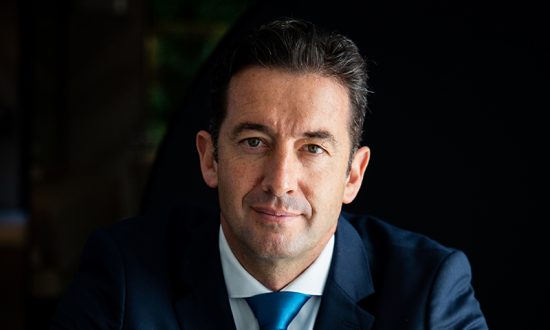Carlos Díez de la Lastra was appointed CEO in March 2022 and previously occupied the position of Managing Director of Les Roches Marbella since January 2014. Since taking office he has focused on promoting the expansion of the school on an international scale by leveraging synergies with Les Roches Global Hospitality Education and from being part of Sommet Education. Throughout his professional career in the field of higher education he has held various executive posts in the areas of marketing, operations and management. His recent positions include Director of Sales and Customer Services at ISLA (now the University Europeia) in Lisbon, Portugal, Vice-President of the European University of Madrid and Director General of the European University of the Canary Islands.
From creating new employment opportunities to bringing foreign exchange, the hospitality industry contributes significantly to a country’s total GDP (Gross Domestic Products). The field that encompasses lodging, food, travelling and tourism offers a constant flow of income into a country, which has only flourished over the last decade due to globalization and digitization. World Travel and Tourism Council (WTTC) 2019 data showed that the Travel & Tourism sector contributed 10.3% to the global GDP.
But when the pandemic hit the world and the global economy shrank by 4.4%, the worst since the Great Depression of the 1930s, the billion-dollar hospitality industry faced a major blow. With travel bans and preventive restrictions imposed on public places across the globe, the world witnessed a near-economic shutdown. UNWTO (United Nations World Tourism Organisation) data revealed that during the first lockdown in 2020, the hospitality industry hit a new low, dipping 73 per cent due to a staggering drop in international tourist arrivals. However, gradually with mass inoculation of vaccination against covid and a drop in the infection cases, the industry showed the signs of recovery.
The resilience and agility of the hospitality industry helped it bounce back on the path the recovery. During the pandemic, when many industries were struggling to re-strategize and plan their operations, hospitality players were quick to adapt to the change, catering to the new requirements of the testing time. Be it hotels being transformed into quarantine centres to contain the virus, promoting the local economy with indigenous food and stay options, or embracing a new work model by offering people’ workation’ and ‘staycation’ options for convenient remote working and unwinding. Understanding the need of the hour, the industry promptly altered its services to cater to one and all. This fluidity in operations and services helped the hospitality and tourism sector flourish at an unprecedented rate, leading to the revival of the local, national, and global economy.
The introduction of cutting-edge technology and innovative methods to provide the guest with hassle-free and contact-less services encouraged guests to step out of their comfort zone and resume their activities like the pre-pandemic era. Research by an online hotel room offer platform Hoo reported an 18 per cent hike in staycations across 16 global holiday hotspots in 2021 as compared to the previous year. Besides the rise in stays and resumption of national and international tourism response, the F&B segment also exhibited upward movement. The fourth industrial revolution, governed by rapid digitalization and advanced technology, helped food delivery services to reinvent their operations and supply chain module in line with the pandemic requirements. The slump of the first year was soon replaced by a jump in the revenue as people ordered more food while staying at home. The estimates based on this trend suggest that in the post-pandemic era, online food delivery services will reach a compound annual growth of 6.24 per cent between 2022 to 2027.
The revival of the journey continued with the lifting of the international travel bans, leading to a rebound in the international tourist arrivals. After over two years of lockdown, travellers who were unable to travel overseas started heading out of the country for a breather or comfortable experiences, a safe and secure environment and better facilities. The positive response from the traveller across the globe soon got reflected on the business side leading to a jump in the share prices of many hotel chains. Observing the recovery of the hospitality industry, UNWTO said that despite its quick bounce back, the industry would take about two-and-a-half to four years to return to 2019 levels in terms of international arrivals.
The World Travel and Tourism Council (WTTC) described the hospitality industry as the main driver of global value creation and predicted it to contribute 8.6 trillion USD to the global economy in 2022. It is only 6.4% below pre-pandemic levels. With the rise in revenue, the industry also helped in generating employment opportunities for the local population and at several destinations. In line with the evolving needs and demands of the customers, the industry raised the requirement for skilled professionals. At present, about 330 million people are part of this industry. This figure is just 1% below the pre-pandemic level and 21.5% above the numbers as were in 2020. Given the pace of its growth, the Hospitality Global Market Report 2022 expects the industry to grow significantly from $3,952.87 billion in 2021 to $4,548.42 billion in 2022 at a compound annual rate of 15.1%. The data showcases great growth prospects that the hospitality industry holds, which is all set to soon surpass pre-pandemic numbers and reach newer heights. The opportunity for our students is that the industry is in terrible need of talents to drive this dynamic. At the same time, the interest for these international careers is very strong.
At les Roches globally, we have seen for example a very positive trend of interest in our Master’s programs than enable talents to reskill into our industry, upskill or fast-track their career in hospitality and managerial positions.


